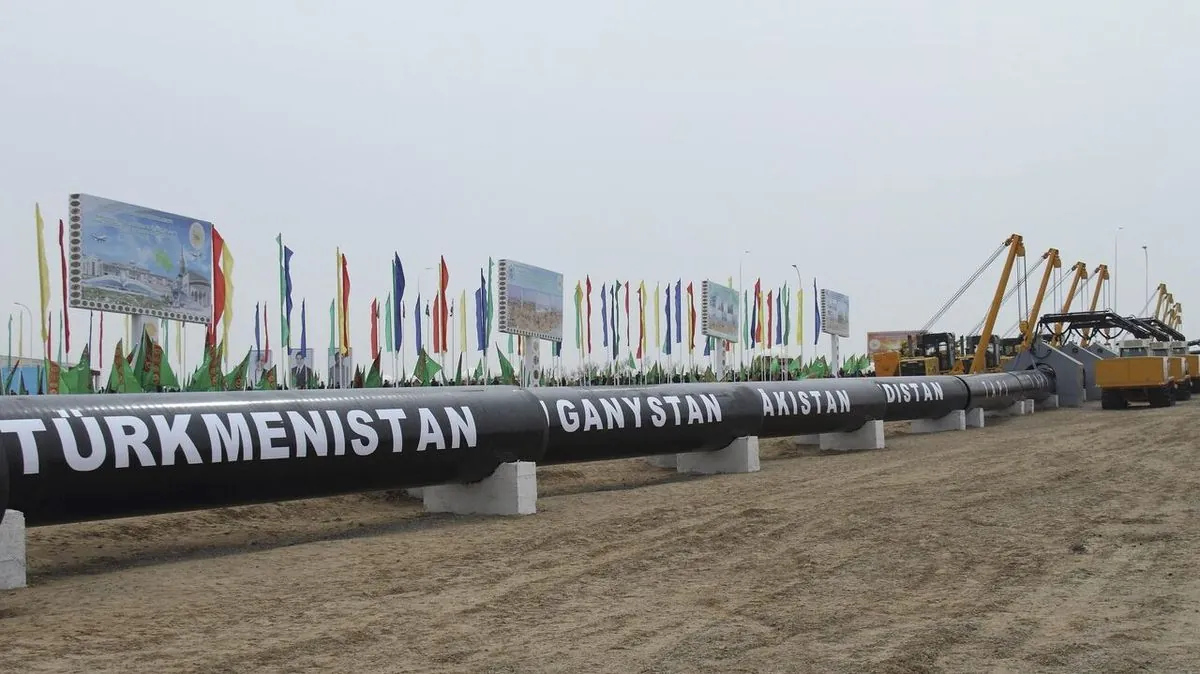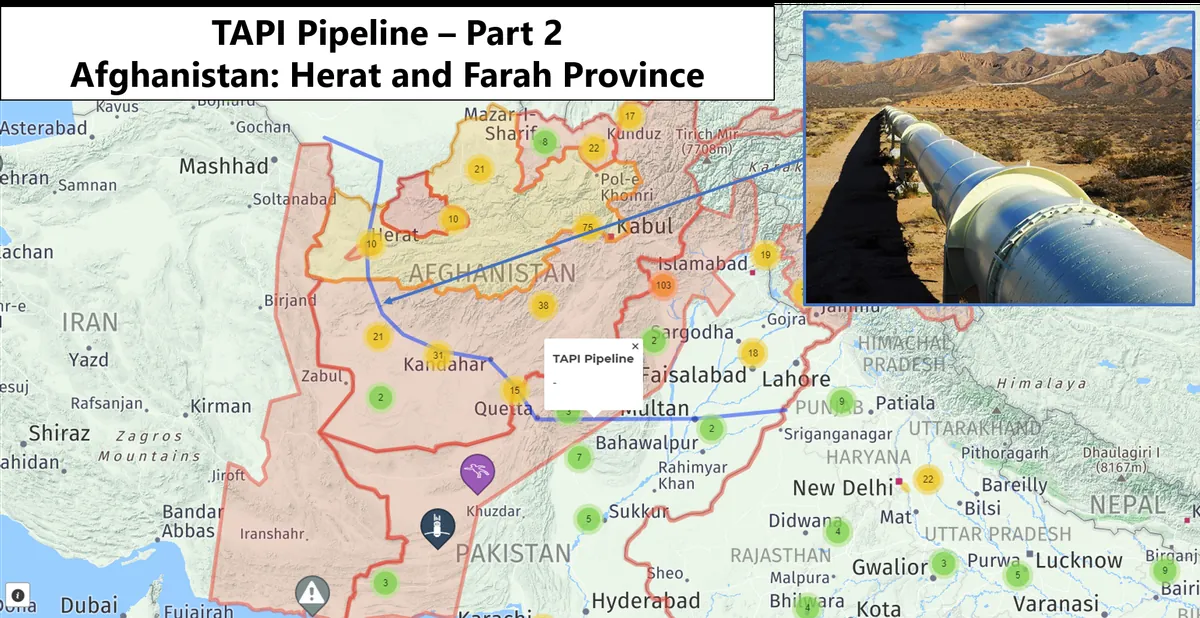Turkmenistan-Afghanistan Gas Pipeline Construction Begins After Delays
Construction of the Afghanistan section of a major gas pipeline from Turkmenistan has begun, years behind schedule. The project aims to supply gas to Afghanistan, Pakistan, and India, boosting regional cooperation.

On Wednesday, a significant milestone was reached in the development of a major international gas pipeline as construction began on the Afghanistan section of the Turkmenistan-Afghanistan-Pakistan-India (TAPI) pipeline. This event marks a crucial step forward for a project that has faced numerous setbacks since its initial proposal in 1995.
The ceremony, held at the border between Turkmenistan and Afghanistan, saw the welding of the first joint of the 100-kilometer pipeline section extending from Turkmenistan to Herat, Afghanistan. In attendance were Hassan Akhund, the Afghan Prime Minister, alongside Turkmenistan's President Serdar Berdymukhamediv and his predecessor, Gurbanguly Berdymukhamedov, who holds the title of National Leader of the Turkmen People.
This development comes after years of delays, primarily due to security concerns in Afghanistan. Originally slated for completion in 2018, only the Turkmenistan section of the pipeline had been finished until now. The TAPI pipeline, sometimes referred to as the "Peace Pipeline," is a 1,814 km long project with an estimated cost of $10 billion.

Upon completion, the pipeline is expected to transport 33 billion cubic meters of natural gas annually from Turkmenistan's vast reserves to Afghanistan, Pakistan, and India. This capacity underscores the project's significance, as Turkmenistan possesses the world's fourth-largest natural gas reserves, estimated at 19.5 trillion cubic meters.
The economic implications of this project are substantial. According to Gurbanguly Berdymukhamedov, the pipeline and associated projects are projected to create 12,000 jobs in Afghanistan and generate over $1 billion in annual revenue for the country. This economic boost is particularly crucial for Afghanistan, which has faced ongoing challenges in recent years.
For Turkmenistan, the world's fourth-largest exporter of natural gas, this pipeline represents an important step in diversifying its customer base. Following the loss of its gas trade with Russia, Turkmenistan has primarily focused on exporting to China. The TAPI project aims to open new markets and strengthen regional cooperation.
The pipeline's route through Afghanistan, including areas controlled by the Taliban, highlights the complex geopolitical landscape of the region. Despite these challenges, the project has garnered support from the Asian Development Bank and is seen as a potential catalyst for improved energy security and economic cooperation in South Asia.
As construction progresses, the TAPI pipeline is expected to operate for at least 30 years, potentially competing with other proposed regional energy projects such as the Iran-Pakistan-India pipeline. The successful completion of this project could mark a new era of energy cooperation in the region, with far-reaching implications for the economies and geopolitical relationships of the countries involved.
"The pipeline project and ancillary projects will add 12,000 jobs in Afghanistan and more than 1 billion US dollars per year in revenue."
As the world watches the development of this ambitious project, its potential to transform regional energy dynamics and foster economic growth remains a topic of keen interest for policymakers, energy experts, and observers worldwide.


































